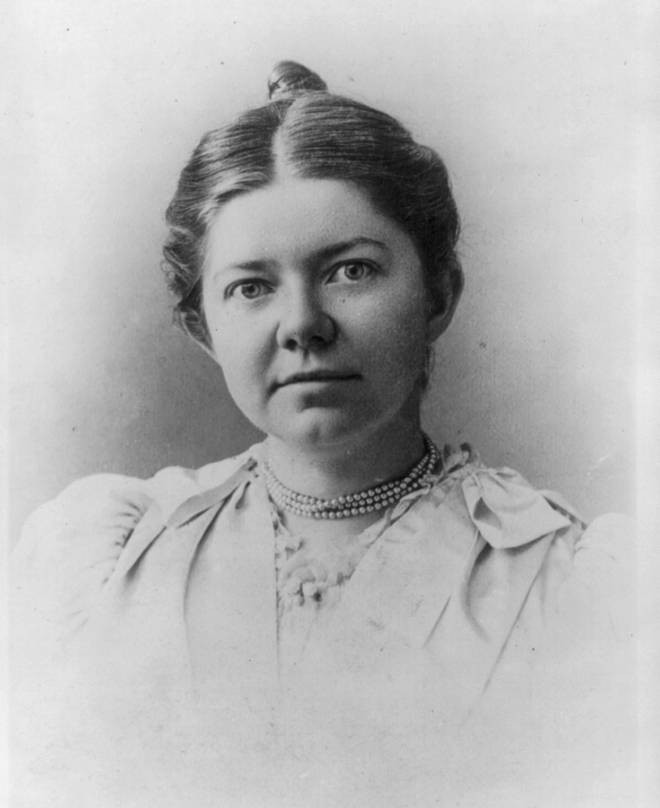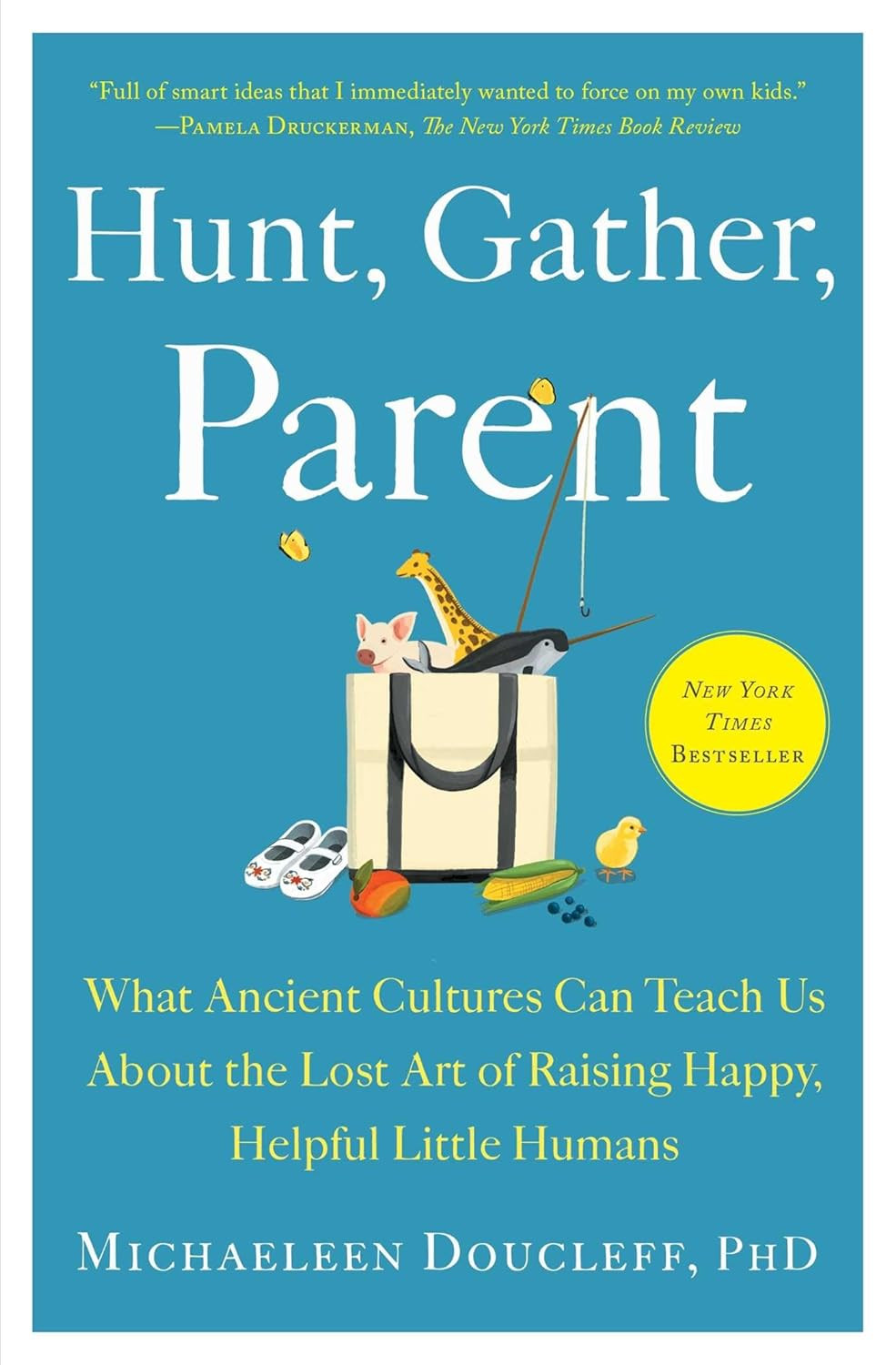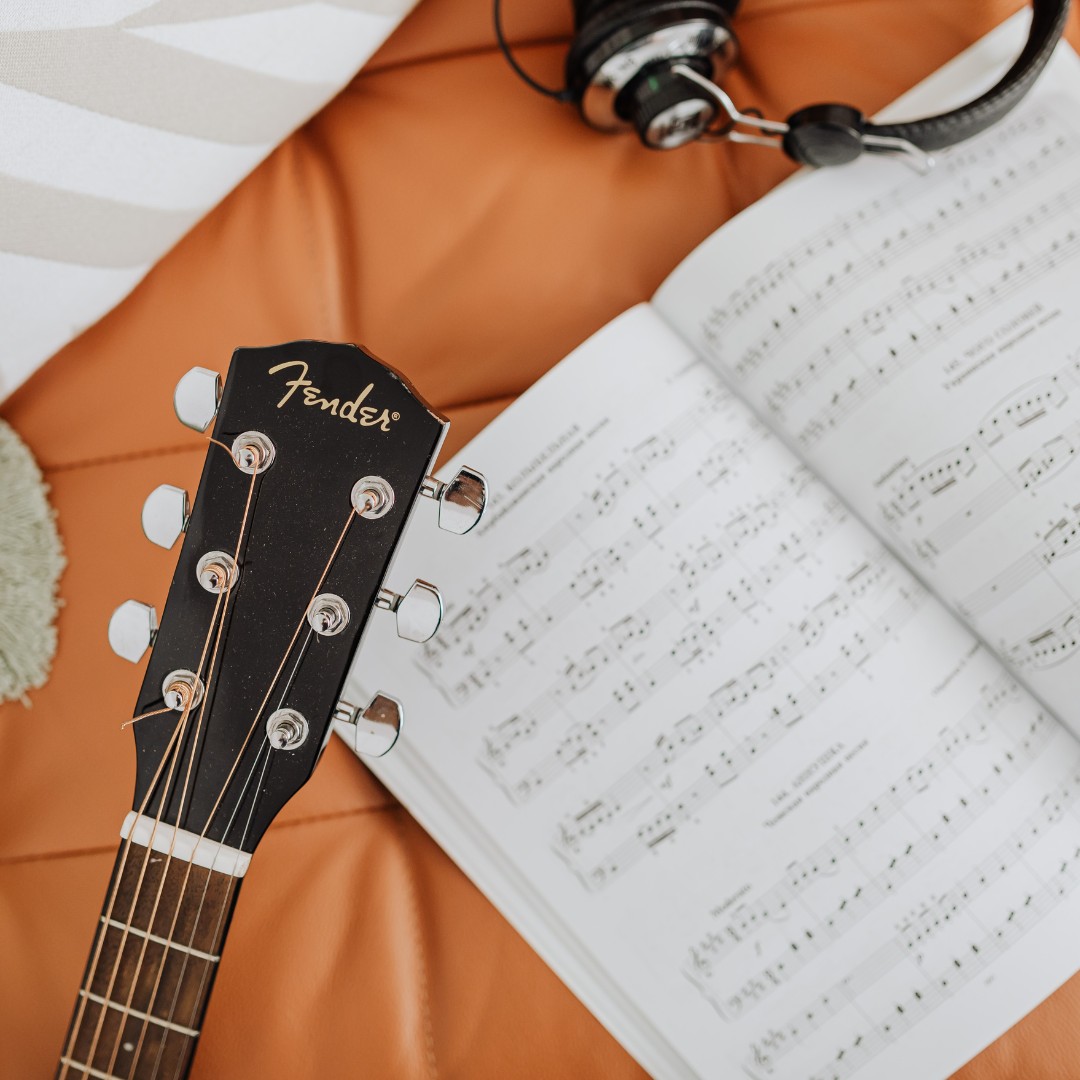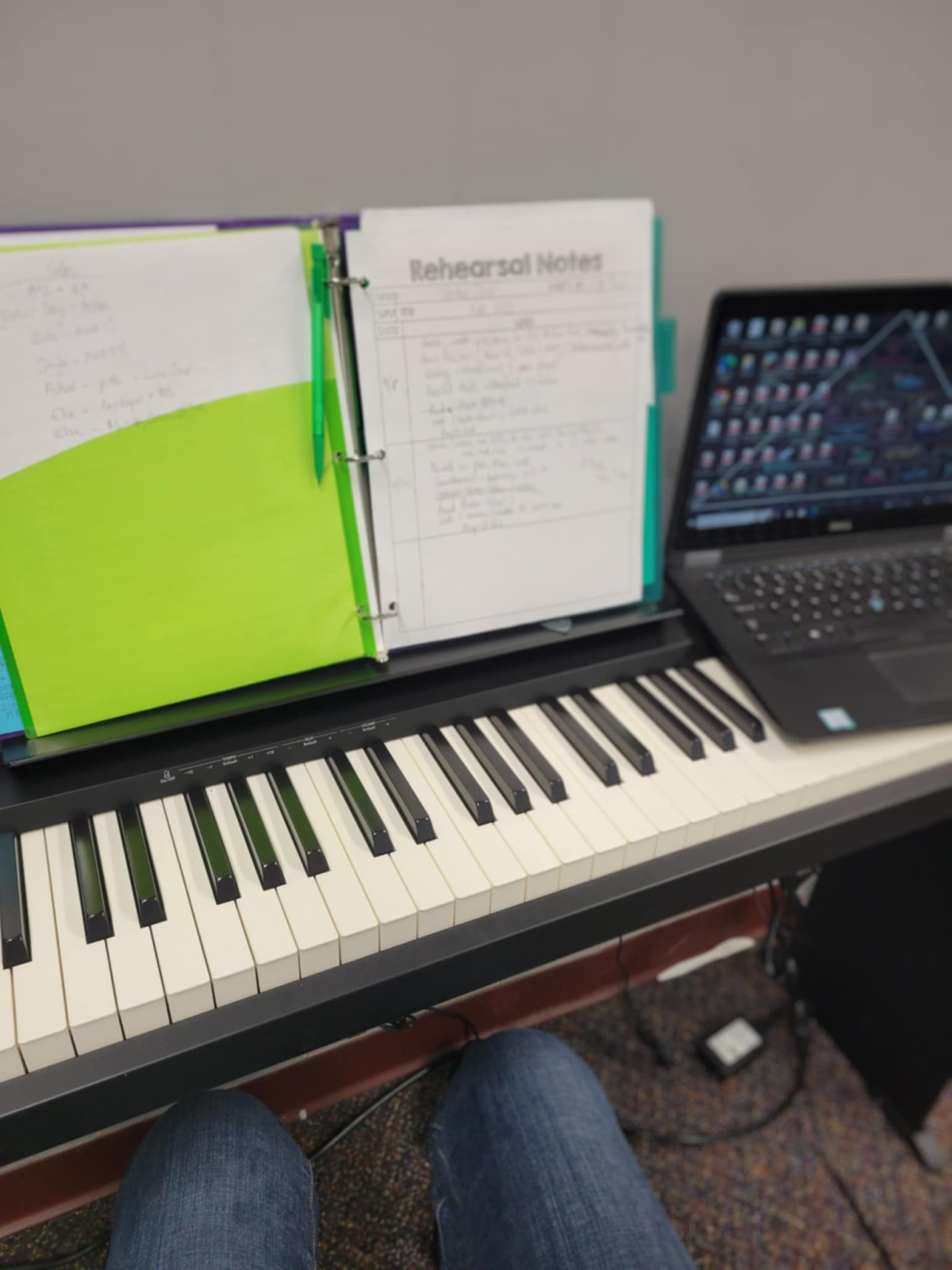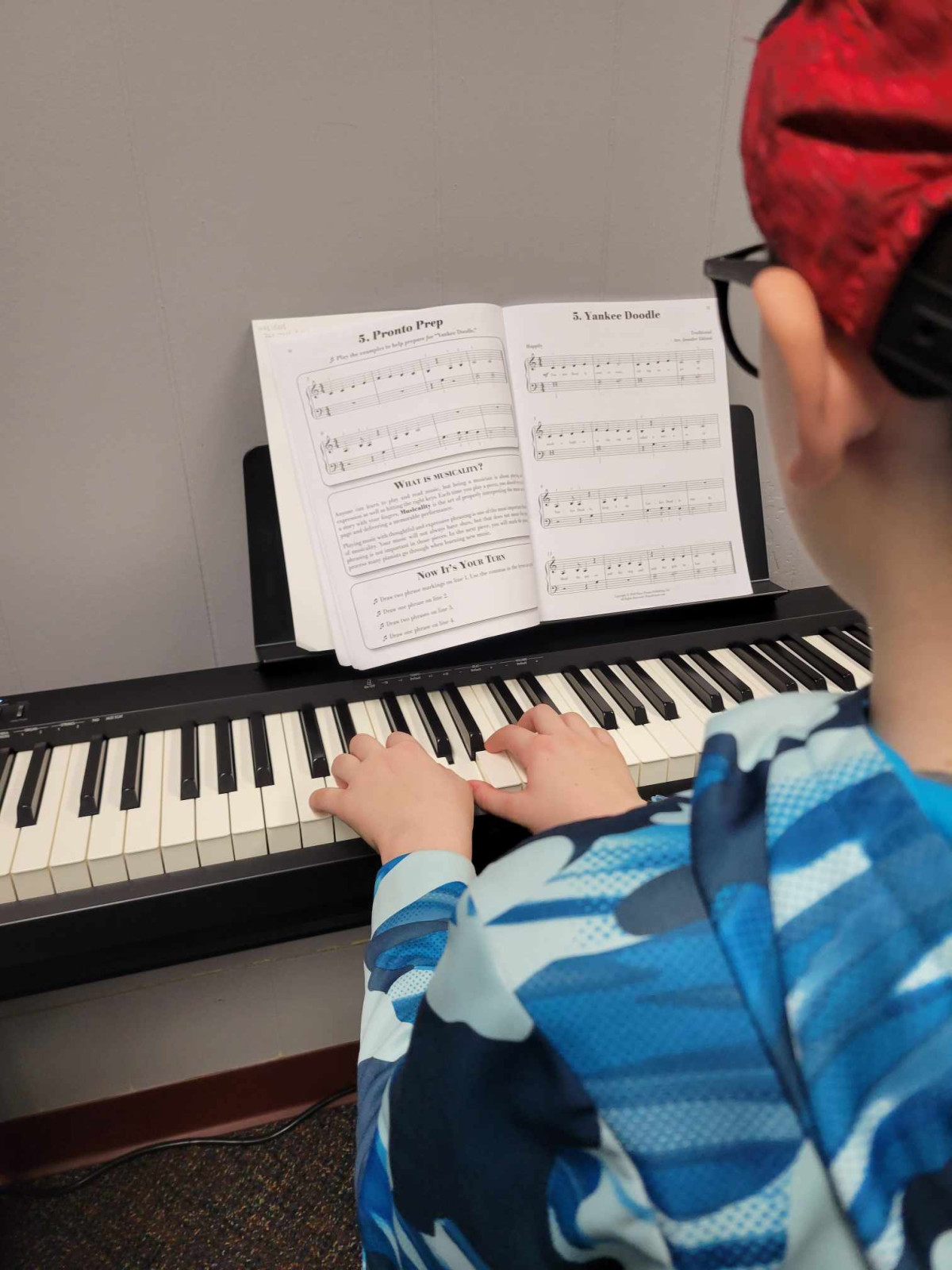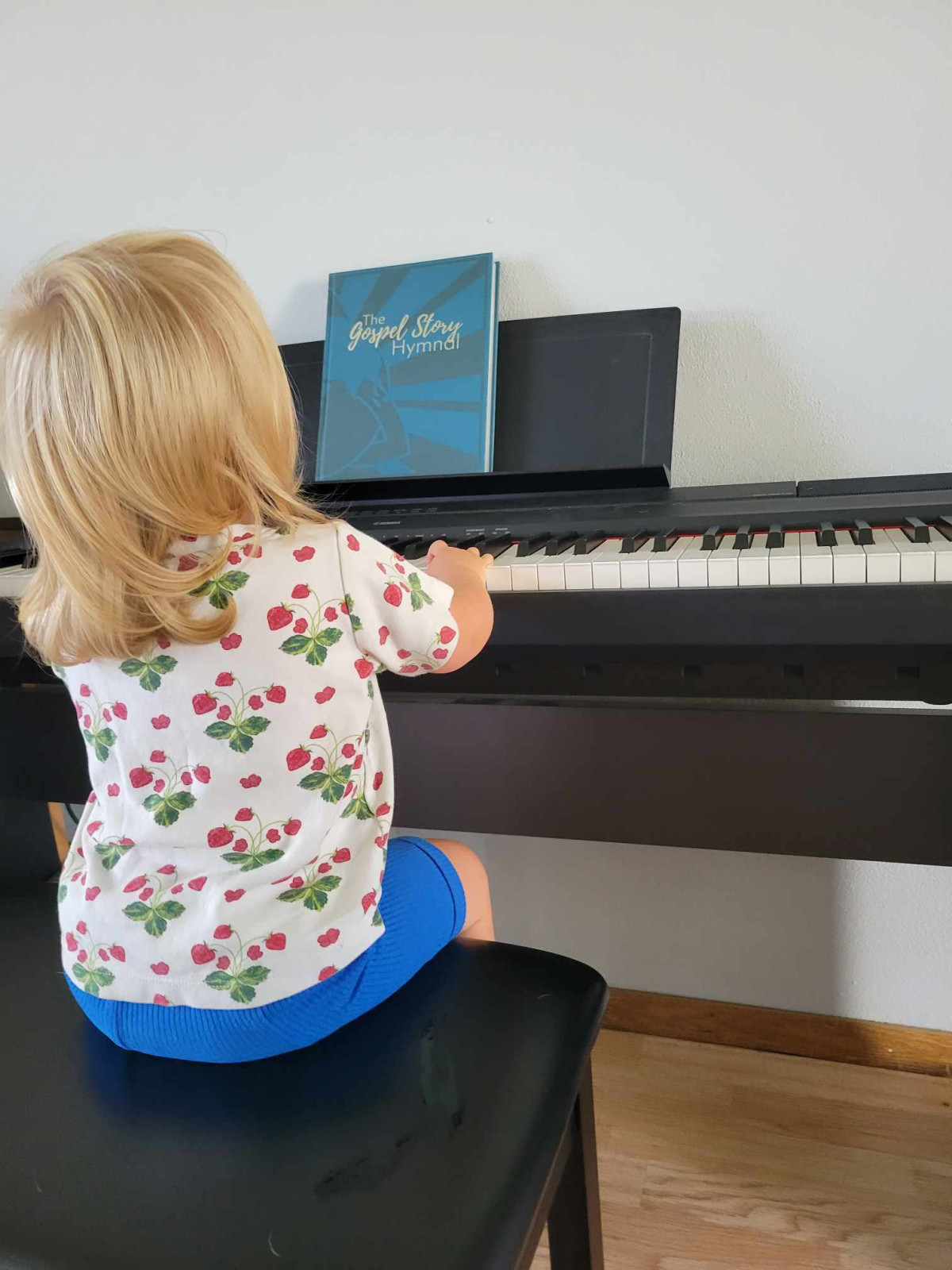
1. Jesus Loves Me
"Jesus loves me, this I know
For the Bible tells me so
Little ones to Him belong
They are weak, but He is strong
2. This Little Light of Mine
"This little light of mine, I'm gonna let it shine
This little light of mine, I'm gonna let it shine
Let it shine, let it shine, let it shine"
3. He's Got the Whole World in His Hands
"He's got the whole world in His hands
He's got the whole wide world in His hands
He's got the whole world in His hands
He's got the whole world in His hands"
4. I've Got the Joy, Joy, Joy Down in My Heart
"I've got the joy, joy, joy, joy down in my heart
Down in my heart, down in my heart
I've got the joy, joy, joy, joy down in my heart
Down in my heart to stay"
5. The Doxology
"Praise God from whom all blessings flow
Praise Him all creatures here below
Praise Him above ye heavenly host
Praise Father, Son, and Holy Ghost
Amen"

Understanding Biblical Obedience
- "Children, obey your parents in the Lord, for this is right." (Ephesians 6:1)
- "Honor your father and your mother, so that you may live long in the land the Lord your God is giving you." (Exodus 20:12)
- "Fathers, do not exasperate your children; instead, bring them up in the training and instruction of the Lord." (Ephesians 6:4)
Key Strategies for Teaching Obedience
1. Lead with Love and Empathy
2. Set Clear, Biblical Boundaries
3. Encourage Good Behavior
4. Discipline with Grace
5. Model Obedience to God
6. Teach the 'Why' Behind Obedience
7. Practice Active Listening
8. Pray Together
9. Focus on Heart Change

The Biblical Foundation for Discipline
Practical Strategies for Christ-Centered Discipline
1. Validate and Explain
2. Use Logical Consequences
3. Model Self-Control
4. Use Encouragement with Consistency
The Power of Connection in Christian Parenting
Grace and Forgiveness: Modeling Christ's Love
Calming Strategies for Parents and Children
Prayer and Guidance: Seeking God's Wisdom

The Many Benefits of Reading Aloud to Children
1. Boosting Language Development
2. Enhancing Cognitive Skills
3. Strengthening Emotional Bonds
4. Improving Attention Span
5. Nurturing Empathy and Understanding
The Crucial Role of Vocal Health for Parents
1. Prioritize Proper Hydration
2. Incorporate Warm-Up Exercises
3. Practice Mindful Volume Control
4. Take Regular Voice Breaks
5. Avoid Vocal Fry
Quick Tips for Reading Aloud Effectively
- Choose Engaging Books: Select stories that captivate your child's interest.
- Use Different Voices: Bring characters to life by using various tones or accents.
- Encourage Interaction: Ask questions about the story to keep your child engaged. Have them narrate what's happening!
- Start Small: Begin with short amounts of time and gradually lengthen the time as your child's attention increases.
- Set a Routine: Establish a regular reading time to make it a cherished daily habit.
- Make It Cozy: Create a comfortable reading environment with pillows or blankets.

Why Listening Matters in Parenting
- Builds Trust: Active listening demonstrates that your child's thoughts and feelings matter, encouraging them to come to you with their concerns.
- Enhances Emotional Intelligence: Listening helps children articulate their feelings, leading to greater emotional awareness and regulation.
- Strengthens Family Relationships: Open communication fosters deeper connections between parents and children, making family life more fulfilling and harmonious.
- Boosts Self-Esteem: When children feel heard and understood, it positively impacts their self-worth and confidence.
- Improves Problem-Solving Skills: By listening attentively, you can help your child develop critical thinking and problem-solving abilities.
Practical Tips for Becoming a Better Listener
- Be Fully Present: Put away distractions like phones or tablets when your child is speaking. Show them that they have your undivided attention.
- Use Open-Ended Questions: Encourage your child to express themselves by asking questions that require more than a simple "yes" or "no" answer. For example, instead of asking, "Did you have a good day at school?" try, "What was the most interesting thing that happened at school today?"
- Reflect and Validate Feelings: After your child shares their thoughts, reflect back what you heard and validate their emotions. You might say, "It sounds like you felt really frustrated when that happened. It's okay to feel that way."
- Practice Patience: Allow your child to finish their thoughts without interrupting. This shows respect for their perspective and encourages them to share more.
- Model Active Listening: Demonstrate active listening by nodding, making eye contact, and providing verbal affirmations like "I see" or "Tell me more." This encourages your child to engage more deeply in the conversation.
- Avoid Judgment: Create a safe space for your child to express themselves by listening without immediate judgment or criticism.
- Use Body Language: Your nonverbal cues can be just as important as your words. Maintain an open posture and lean in slightly to show engagement.
Intentional Communication: A Key Principle in Parenting
- Setting aside dedicated time for conversations with your children
- Being mindful of your tone and words
- Actively seeking to understand your child's perspective
- Using age-appropriate language and concepts
- Incorporating family values into your discussions
The Power of Listening in Family Life
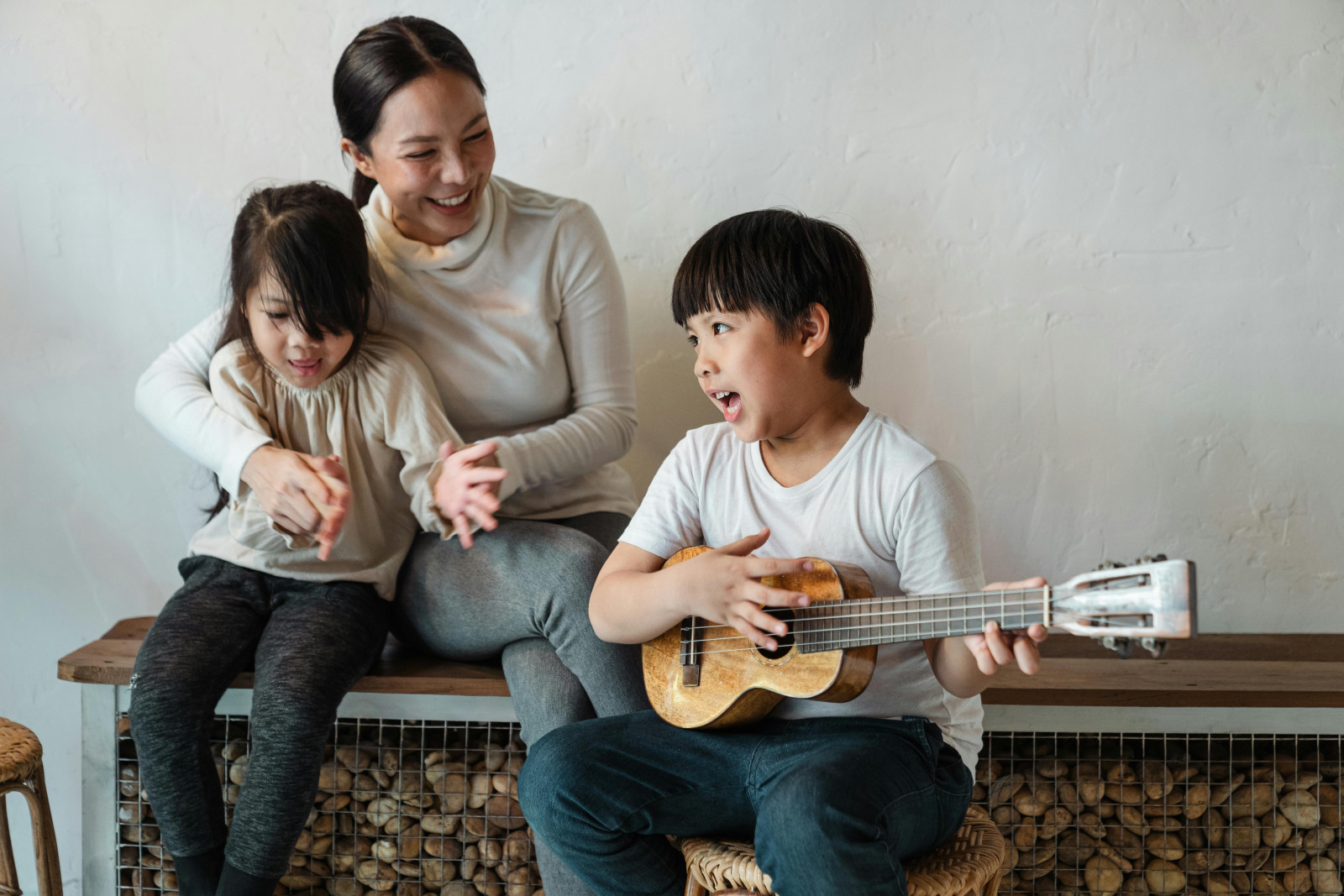
The Benefits of Music for Young Children
1. Curate a Family Morning Playlist
2. Use Music as Transition Cues
3. Incorporate Educational Songs
4. Encourage Sing-Alongs and Dance Parties
5. Start with Calming Music

The Power of Music in Managing Tantrums
Top Songs for Calming Tantrums
- "Twinkle Twinkle Little Star"
- "What a Wonderful World" by Louis Armstrong
- "I Want to Hold Your Hand" by The Beatles
- "Somewhere Over the Rainbow" by Israel Kamakawiwo'ole
- "Canon in D" by Pachelbel
But the most important part of picking a song isn't the song -- it is YOU. Can you sing the song soothingly? Can you access it to play easily? Songs that you know and can sing to create relational bonding with your child and help co-regulate with them to calm are going to be the most effective.
How to Use Music Effectively
- Immediate Response: Sing a fun, upbeat song that your child loves when you notice signs of an impending tantrum.
- During Meltdowns: If your child is already upset, sing softly and rock them or hold them (if they will allow) to create a calming environment.
- Routine Integration: Incorporate music into daily routines to help your child feel more secure and reduce resistance to transitions, which are often the source of tantrums. If you recognize a trigger event or time of day for your child to have a tantrum, how can you creatively incorporate music to help them cooperate, calm, or experience that part of day more easily?
Additional Strategies for Tantrum Management
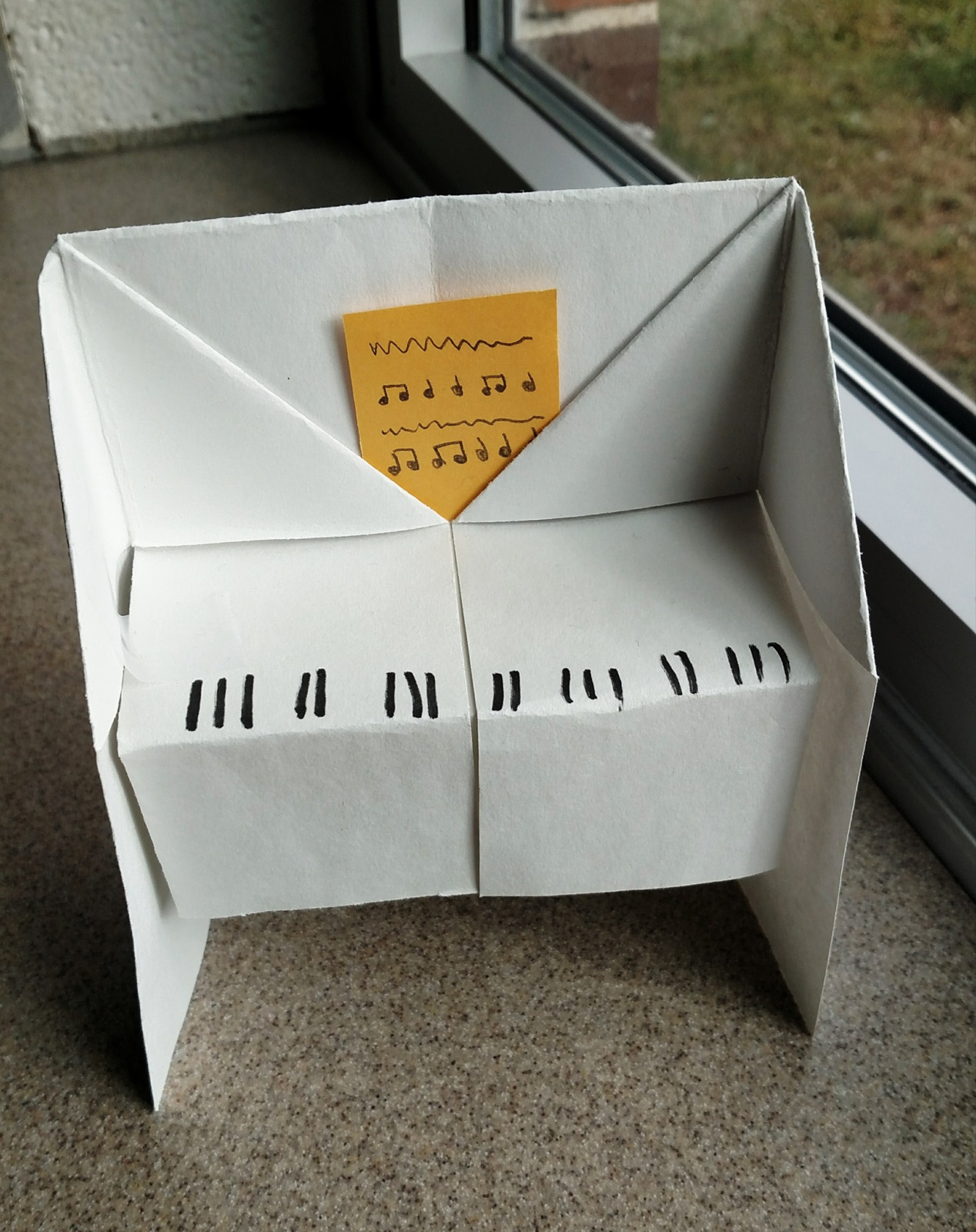
The Power of Music
Choosing the Right Music
Classical Music
- Mozart’s “Piano Concerto No. 21”: A beautiful, calming piece that soothes the soul.
- Beethoven’s “Moonlight Sonata”: Its gentle and flowing melodies create a peaceful ambiance.
- Bach’s “Air on the G String”: Perfect for creating a serene and relaxing environment.
Ambient Music
- Brian Eno’s “Music for Airports”: An iconic ambient album perfect for relaxation.
- Moby’s “Long Ambients 1: Calm. Sleep.”: Specifically designed to aid in sleep and relaxation.
- Aphex Twin’s “Selected Ambient Works Volume II”: A collection of deeply soothing ambient tracks. (I don't really like these personally, but that's okay! Each person can find their own most calming music!)
Nature Sounds
- “Ocean Waves: Nature Sounds for Relaxation”: Ideal for creating a calming seaside atmosphere.
- “Rainforest Sounds”: Brings the serene sounds of a lush forest to your home.
- “Thunderstorm Sounds”: Perfect for those who find the sound of rain and thunder soothing.
Acoustic and Instrumental
- Ludovico Einaudi’s “Nuvole Bianche”: A hauntingly beautiful piano piece.
- Acoustic Alchemy’s “The Beautiful Game”: Smooth and relaxing acoustic guitar.
- Yiruma’s “River Flows in You”: A gentle and calming piano melody.
Chillout and Downtempo
- Bonobo’s “Black Sands”: A mix of electronic and acoustic elements for a relaxing experience.
- Zero 7’s “In the Waiting Line”: A soothing downtempo track perfect for relaxation.
- Thievery Corporation’s “The Richest Man in Babylon”: A chillout track with a world music influence.
Creating a Musical Sanctuary
Benefits for the Whole Family
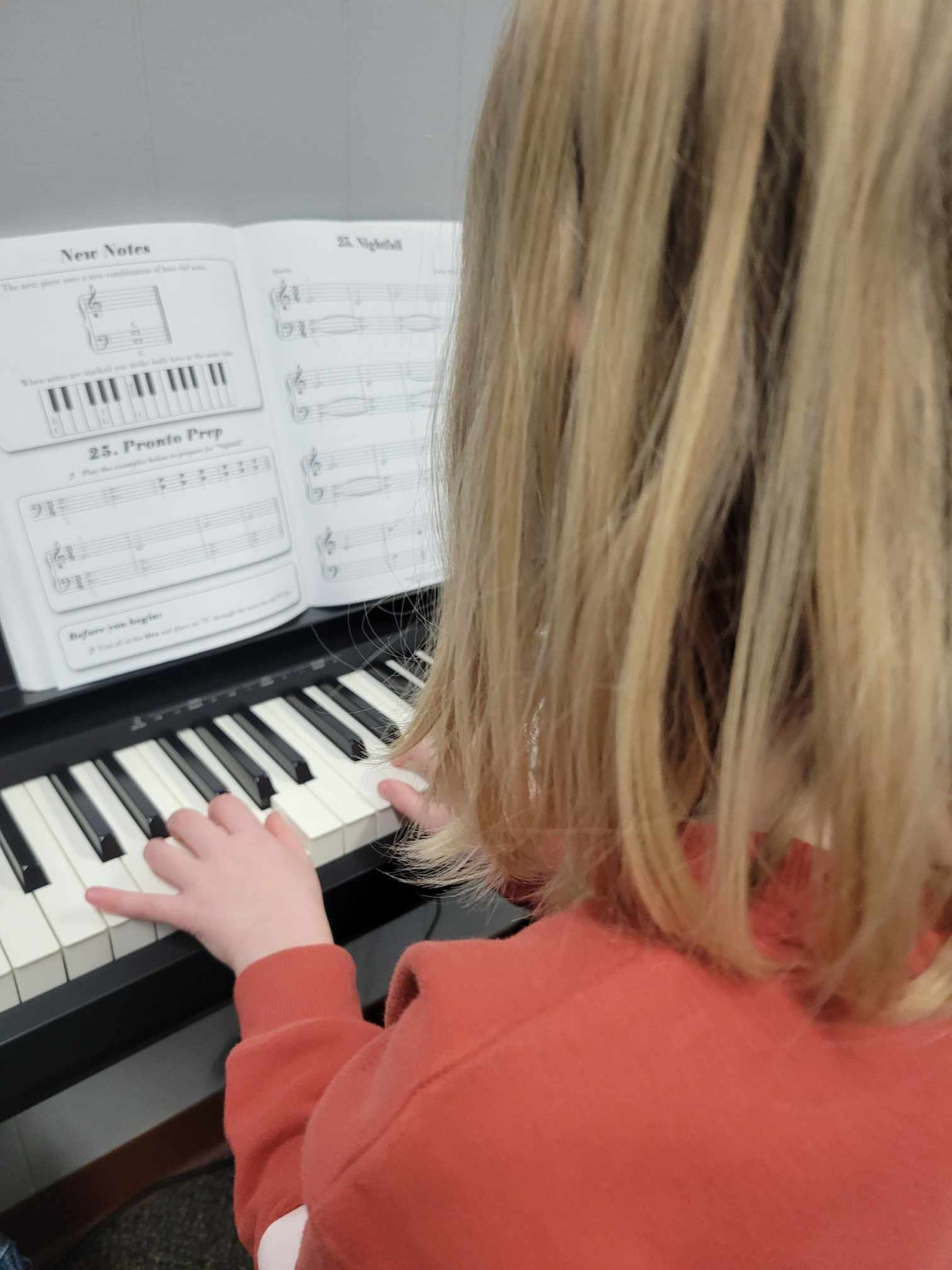
- Cognitive Development: Music's Impact on Learning Music education is integral to classical homeschooling for its role in enhancing cognitive abilities. From improving memory and attention span to sharpening auditory discrimination skills, studying music provides a well-rounded cognitive workout, supporting critical thinking and analytical skills as well as literacy and poetic understanding especially in the early years. Dr. John Feierabend says this is why learning to create music, not just learning about music, is so important especially in ages birth-age 8. Gaining knowledge about music, like memorizing Bach's birth year or mnemonic devices for note names, primarily utilizes one's linguistic intelligence. While this information is certainly useful, it doesn't necessarily lead to a deep understanding of music. True musical intelligence involves the development of neural pathways for musical thinking early in life. This foundational understanding is crucial for later learning to have genuine musical significance. Once our minds establish pathways for understanding, it becomes difficult to alter our perception. Individuals who immerse themselves in music, learning songs and moving artfully to the steady beat, are better positioned to grasp musical notation and instrument playing later. Learning an instrument initially by ear, and then transitioning to reading notation, effectively enhances both skills. On the other hand, those who exclusively learn through notation without prior musical readiness may struggle to develop ear-playing abilities because they learned from a mathematical/linguistic lens first.
- Cultural Literacy: Embracing Musical Traditions Classical homeschooling values cultural literacy and historical understanding. Through exploring a wide variety of musical traditions, students gain insights into different cultures and time periods as well as various life experiences and perspectives. As Charlotte Mason said, "The child should be made familiar with and should be made to appreciate good music." This exposure enriches their educational journey and broadens their horizons.
- Emotional Intelligence: Music as a Tool for Growth Music plays a vital role in developing emotional intelligence within classical homeschooling. By engaging musically, students learn to recognize and manage their emotions. They learn and remember through stories set to music what they may not as easily otherwise. And instrumental music without words has a key role to play as well. As Charlotte Mason believed, "Music is one of the most forcible instruments for refining the feelings." This aspect of education fosters empathy, social-emotional growth, and self-awareness.
- Discipline and Perseverance: Building Habits through Music Learning to play a musical instrument requires discipline and perseverance, values cherished by Charlotte Mason homeschoolers. Through regular practice and overcoming challenges, students develop habits of diligence and self-mastery that extend beyond music into all areas of their lives.
- Creative Expression: Nurturing Individuality through Music In Charlotte Mason classical homeschooling, students are encouraged to express their creativity in learning. Music provides a platform for this expression, allowing students to compose, improvise, and interpret music in unique ways. By embracing their musical instincts, students become active participants in their artistic development.
- Community and Collaboration: Music's Role in Connection Music fosters community and collaboration, whether a child is singing with a group of people, learning turn-taking while playing instruments, or listening as a part of an audience to a collective performance. Students bond over their shared love of music. This sense of camaraderie strengthens relationships and promotes cooperation among peers.
In classical homeschooling, music education plays a pivotal role in enriching the educational experience. From cognitive development to emotional intelligence, music offers practical benefits and meaningful engagement with the world around them both present and past. By integrating music into the curriculum, educators empower students to excel academically and cultivate a lifelong appreciation for the arts. As Charlotte Mason believed, "The musical education of the child should be begun early; that is, the child should have begun to play and sing almost as soon as he can speak." Let us embrace the transformative power of music in classical education, guiding children on a journey of discovery and growth.

- Embrace Your Role as a Guide: Your musical journey with your children begins by understanding that you don't need to be a virtuoso. Think of yourself as a guide, introducing your children to the world of music, helping them explore different genres and exposing them to new songs, providing support and encouragement and showing them you are learning along the way with them.
- Start with the Basics: Begin by laying a solid foundation in music theory, covering essential elements such as rhythm, melody, and harmony. Engage your children with interactive games, fun songs, and hands-on activities to make learning enjoyable and effective. Don't know where to begin with that? Check out the Classical Collective Membership for resources.
- Make Use of Resources: Leverage the wealth of resources available online to support music education at home. From interactive tutorials and educational apps to lessons and community music groups, there's something for every age and skill level. These resources can enrich your children's learning experience and provide valuable support for you as a parent-teacher.
- Encourage Creativity: Nurture your children's creative expression through music by encouraging them to compose their own songs, experiment with different instruments, and even craft homemade musical instruments from household items. Emphasize the joy of exploration and self-expression, fostering a love for music that goes beyond rote learning.
- Lead by Example: Set a positive example for your children by actively engaging with music in your daily life, showing them you are also a lifelong learner! Listen to a variety of musical genres together, sing and dance, read them songtales, attend live performances, and demonstrate that music is something to be enjoyed and celebrated as a family together.
- Be Patient and Persistent: Above all, remember that learning music is a journey that requires patience and persistence. Celebrate your children's progress, no matter how small, and encourage them to persevere through challenges. By fostering a supportive and nurturing environment, you can inspire a lifelong passion for music in your children.
Teaching music at home can be a rewarding experience for both you and your children, regardless of your musical background. By embracing your role as a guide, starting with the basics, utilizing resources, encouraging creativity, leading by example, and maintaining patience and persistence, you can instill a lifelong love of music in your children and grow your own skill and confidence along the way. So, don't hesitate to start this musical adventure together and discover the joy of making music at home!
